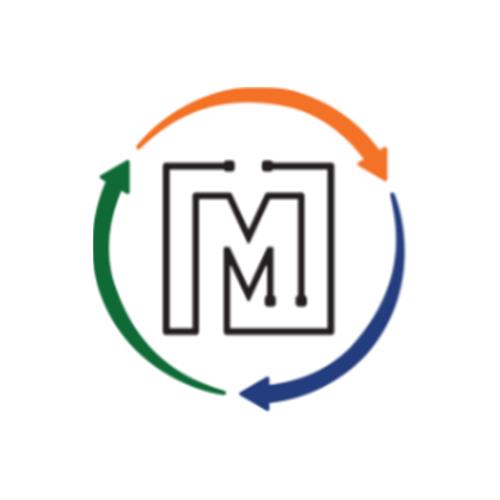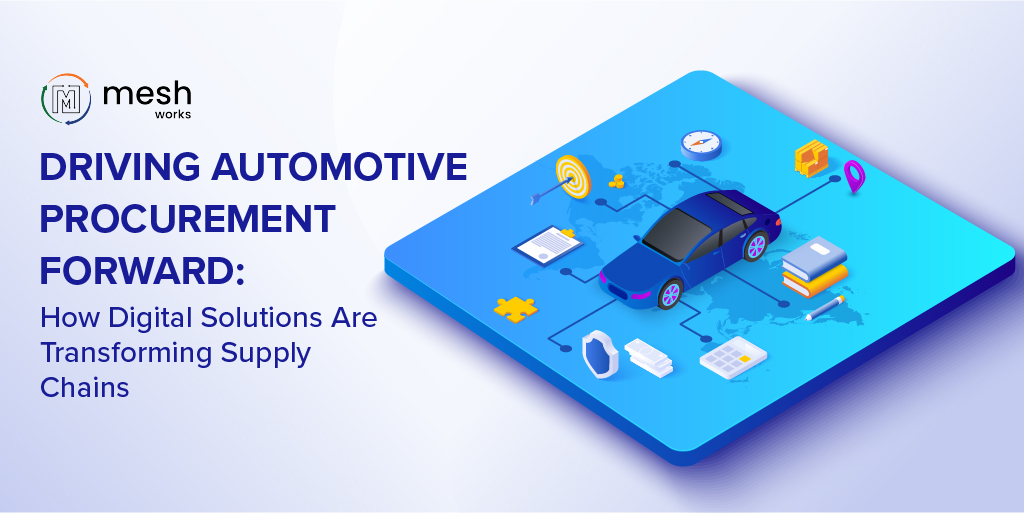Type the words “auto,” “procurement,” and “disruptions” into a search engine or even an AI search tool, and you’ll uncover a wealth of insights analysing the automotive industry’s procurement challenges over the past decade.
These challenges stem from both environmental and human-induced disruptions – from COVID-19 and global tariffs to geopolitical conflicts and resource shortages.
In response, automotive companies have adapted quickly, ensuring the sector remains a leader in supply chain innovation. One of the most significant advancements has been the digitalization of supply chain processes.
But what does digital transformation mean for automotive procurement?
Let’s explore the challenges, needs, and solutions shaping the industry today.
Key Challenges in Automotive Procurement
Previous years within the automotive industry have been riddled with disruptions that have impacted those in charge of managing procurement or any portion of the supply chain.
Here is just a brief overview of the various disruptions that can impact the supply chain:
Human Disruptions:
According to Junior et al. (2023), human disruptions are another challenge that threatens the supply chain and is caused by human behavior.
Some examples of this disruption include tariffs on shipping, industrial accidents, strikes, and the spread of COVID-19 in 2020.
Environmental Disruptions:
These types of disruptions are outside humans’ control and are solely a result of Mother Nature. For instance, natural disasters, global warming, tsunamis, and earthquakes are all examples of environmental disruptions.
Communication Disruptions:
Based on a recent interview with a former Engineering Coordinator in the Purchasing Technical Division for Honda, another challenge for individuals in the industry is the breakdown of communication between teams.
In fact, when asked about internal communication breakdowns of the supply chain model, this former employee responded with the following statement:
“Communication (breakdowns) existed, and if issues arose and were missed, it ultimately caused a delay of a model. These issues caused crisis events which cost Honda a lot of money.”
This statement shows that internal communication is another potential disruption that holds the power to impact the supply chain negatively.
Most of these disruptions that threaten the automotive supply chain are out of the control of a company’s procurement team.
Although the industry’s challenges have adapted over the years, so have their needs.
Automotive Procurement Needs and Capabilities
Automotive companies must manage complex product portfolios, which require a mature quality assurance process.
Now, more than ever, they need resilient suppliers who can forecast sourcing and produce rare raw materials.
A Resilient Supplier:
To be resilient in the supply chain industry means you need to be able to handle disruptions by adapting effectively, communicating effectively, and managing time effectively.
Yet almost 80% of companies do not feel they have an adequate plan to soften the blow of supply chain disruptions in a strategic manner.
Therefore, the need for resilient suppliers is currently a demand for most automotive companies.
Forecast Analytics:
Automotive companies need visibility into their suppliers’ operations and strategies throughout the entire supply chain process.
This is to ensure that part production is being managed effectively and to also be strategic in mitigating some of the challenges mentioned in the previous section.
Rare and Raw Materials:
With electric vehicles on the rise, automotive companies are requesting unique materials, such as rare metals, for batteries and processes to obtain parts. Hence, there is a need for suppliers that can deliver these parts in a timely and consistent fashion.
To help mitigate the challenges discussed and address the industry’s needs, many companies have begun digitalizing the supply chain process.
In fact, many companies have created their own software to assist in managing the supply chain process.
Even with this company-based software, automotive procurement teams still deal with messy paper trails, lengthy requests for quotes (RFQ), and low visibility amongst various departments.
These variables all threaten to disrupt the automotive industry, yet few may know there is a solution to this problem.
Digital Solutions: How MESH Works Transforms Procurement
MESH Works is a cloud-based sourcing, procurement, and quality tool built for metal part suppliers and buyers. Here are a few of the features MESH Works offers to the automotive industry.
Supplier Audits:
MESH Works has completed over 4000+ audits of suppliers currently in their database. Of those suppliers, over 2858 are relevant to the automotive industry.
An objection one may have about using this product is that their current supplier is not currently in the database.
MESH Works considered this when designing the platform and created a feature allowing companies to input their current supplier’s information for no additional fee.
Reverse Auction:
Sourcing teams can find & include suppliers in Reverse Auctions to create competition & get best pricing.
This feature of our procurement management software supports procurement sourcing strategies and managing supplier performance. It allows for quicker supplier qualification and helps reduce costs.
Managing RFQs:
Now that all your suppliers are in one database, you can search for suppliers who produce certain materials, have specific certifications, and more.
Most importantly, any department within an automotive company can manage RFQs from all suppliers on one platform.
Visibility:
Remember that internal communication challenge we previously discussed?
Well, with MESH Works, internal communication disruptions cease to exist.
This platform grants all organizational departments access to supply chain steps, RFQ negotiations, and decision changes.
Main Takeaway
Automotive procurement managers must strategically address challenges and meet needs promptly. Various platforms have indicated that the digitalization of the supply chain process is HERE!
MESH Works is the digitization platform for the future of the supply chain.
Have you checked it out yet?
If not, maybe a final quote from our recent interviewee will convince you to book your demo.
“With MESH these programs (procurement, quality, and engineering) can be managed in a more systematic way with responsibilities clearly defined. When an issues or a GAP is found the MESH team can quickly identify and resolve them in a more efficient manner and take care of managing the program for a company like Honda, so they can focus on building a quality product, which is what they are known for.”





